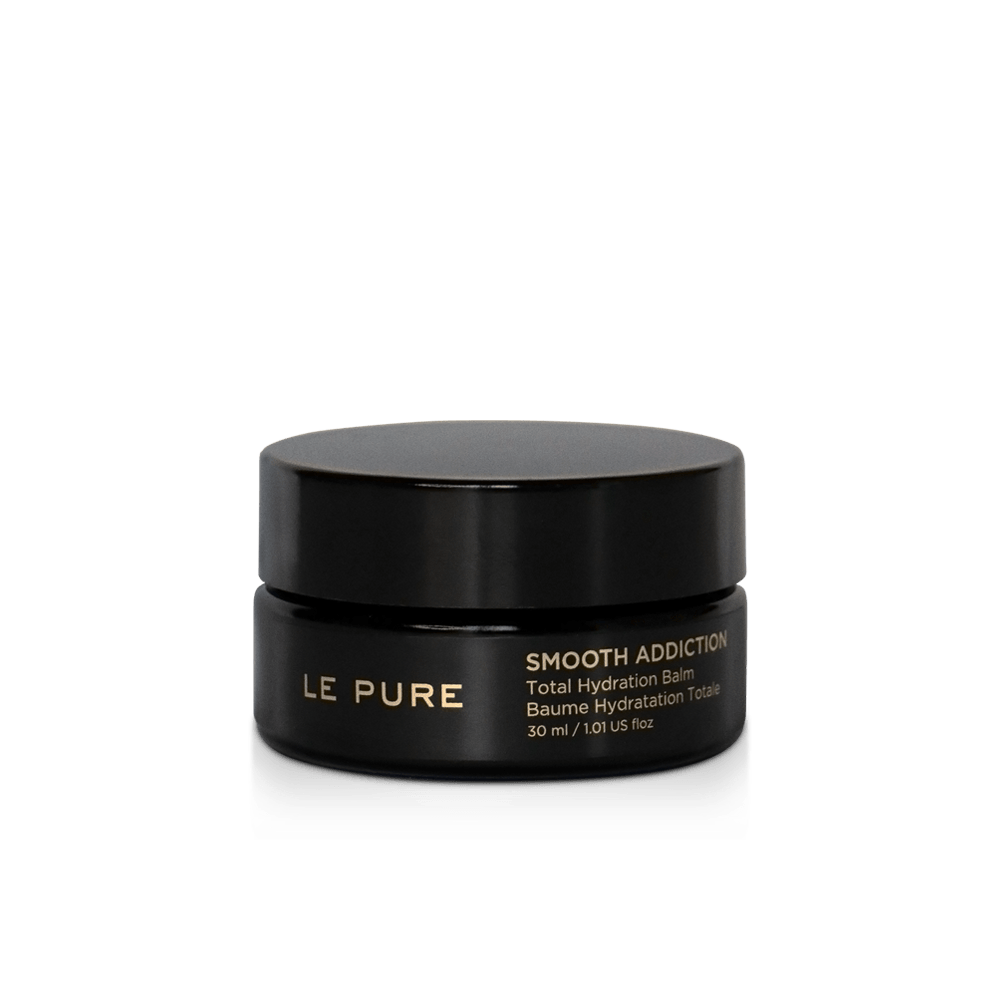Vitamin C is a key component of many cosmetic products, renowned for its numerous benefits such as brightening, collagen production, and protection against environmental damage.
With so many skincare products featuring this potent substance, it is essential to understand the difference between natural vs. synthetic vitamin C.
Types of Vitamin C in Skincare
Vitamin C is a powerful antioxidant that is highly beneficial for the skin. It is widely used in skincare products for its anti-aging and anti-inflammatory properties.
A skincare product can contain different types of vitamin C:
- The vitamin C isolated from a natural source is synthetic or has been chemically modified. This isolated substance is then added to a skincare product but requires adding stabilizing substances since vitamin C oxidizes very fast. While this synthetic form of vitamin C (ascorbic acid or its derivatives) is easy and inexpensive to produce, it is a concentrated artificial substance that can potentially cause irritation, especially on sensitive skins.
- Vitamin C is a natural component of the plants included in the product. It acts in synergy with hundreds of other nutrients contained in the plant. This unaltered composition preserves the vitamin C naturally, and we do not need to add any additional to preserve it. The natural vitamin C derived from plants offers numerous additional benefits, as it also contains hundreds of other advantageous components like bioflavonoids, enzymes, and phytonutrients. These elements can work synergistically to enhance the efficacy and skin absorption of vitamin C, which is the reason why it is the best form of vitamin C for your skin. Even though the amount of naturally occurring vitamin C in a plant may be lower in dosage, the fact that it is in its natural context along with hundreds of other beneficial and balancing components, its anti-aging effect on the skin is more potent.
Natural Vitamin C for the Skin
As we know from numerous studies about nutrition, it is always more beneficial for the human body to consume fruits and vegetables than to take vitamin supplements. Not only the natural vitamin C itself is important for the skin, but also all the other nutrients of the plant that act in synergy. This highly beneficial, synergistic action is not achieved, if an ingredient is isolated and later added to a product. This is true for the food we eat as well as the cosmetics we apply on our skin.
In the study “Antioxidant benefits of fresh apples” from Cornell University the authors suggest that a small apple (100 g), has an antioxidant activity equivalent to 1500 mg of vitamin C. It also suggests that a high dose (500 mg) of a vitamin C supplement could act as a pro-oxidant in the body.
Absorption of Vitamin C
The other aspect is the absorption of vitamin C – if we eat 1kg of kiwis, the vitamin C of all these fruits cannot be absorbed by the body. The skin acts very similarly. So it is not a question of how much percentage of vitamin C is in the product, but the synergistic action of all the included nutrients. The quality of the plant is of course also very important here.
In the LE PURE products, we use the ideal dose of vitamin C, meaning it stimulates and supports the skin’s natural regeneration process, but it does not sensitize or stress the skin in any way. It can also be used at any time of the day and in connection with all our products that contain natural retinol, for example.
Therefore, it makes absolutely no sense to talk about the vitamin C content in percentages, in a product, as a truly organic product is completely different from a product that contains chemically modified and isolated substances.
Skin Benefits of Natural Vitamin C

There are many skin benefits of natural vitamin C:
1. Enhanced Efficacy and Absorption of Vitamin C
The presence of bioflavonoids, enzymes, and phytonutrients in natural vitamin C works synergistically to boost its effectiveness in skincare products. Furthermore, natural vitamin C tends to be better absorbed by the skin, leading to more noticeable results.
2. Vitamin C’s Role in Reducing Skin Irritation
As a natural component of plants, natural vitamin C is less likely to cause skin irritation compared to synthetic forms.
3. Antioxidant Properties of Vitamin C
Natural vitamin C possesses potent antioxidant properties that protect the skin from free radicals and environmental stressors, helping to prevent premature aging and maintain a youthful appearance.
4. Vitamin C and Collagen Production for Skin Health
Natural vitamin C stimulates collagen production, which is essential for maintaining skin elasticity and reducing the appearance of fine lines and wrinkles.
5. Skin Brightening Effects of Vitamin C
Natural vitamin C helps to brighten the skin and even our skin tone by reducing hyperpigmentation and dark spots, giving a radiant complexion.
6. Enhanced Skin Repair with Vitamin C
The natural healing properties of vitamin C aid in repairing damaged skin cells, promoting a healthier and more youthful complexion.
7. Anti-inflammatory Benefits of Vitamin C
Natural vitamin C possesses anti-inflammatory properties that can help soothe and calm irritated and inflamed skin.
8. Synergy of Vitamin C with the other Plant-based Ingredients
As a natural component of plants, natural vitamin C can work synergistically with other plant-based ingredients in skincare formulation, enhancing the overall effectiveness of the product.
9. Environmentally friendly sourcing of Vitamin C
Sourcing vitamin C from plants is more sustainable and eco-friendly compared to synthetic production methods.
Discover our Range of Skincare Products Containing Ingredients rich in Natural Vitamin C

Here are some of our products with ingredients rich in natural vitamin C:
Velvet Hydration:
The Antioxidant Regeneration Essence is rich in vitamin C thanks to the Hibiscus and Rose flower extracts and the presence of the Bitter Orange flower oil (Citrus aurantium amara).
Ingredients’ official names:
- Hibiscus sabdariffa flower extract (Hibiscus)
- Citrus aurantium amara flower oil (Bitter Orange)
- Rosa centifolia flower extract (Rose)
Smooth Addiction:
The Total Hydration Balm contains a lot of natural vitamin C thanks to the Sea Buckthorn and Prickly Pear fruit extracts as well as the Calendula flower extract.
Ingredients’ official names:
- Hippophae rhamnoides fruit extract (Sea Buckthorn)
- Opuntia ficus-indica fruit extract (Prickly Pear)
- Calendula officinalis flower extract (Calendula)
Midnight Rejuvenation:
The vitamin C content in the Restructuring Oil Serum is sourced from Sea Buckthorn and Prickly Pear fruit extracts as well as the Calendula flower extract.
Ingredients’ official names:
- Hippophae rhamnoides fruit extract (Sea Buckthorn)
- Opuntia ficus-indica fruit extract (Prickly Pear)
- Calendula officinalis flower extract (Calendula)
Way To Radiance:
The Nourishing Cream Concentrate features a blend of Sea Buckthorn and Prickly Pear fruit extracts, along with Calendula flower extract, which provide its rich vitamin C content.
Ingredients’ official names:
- Hippophae rhamnoides fruit extract (Sea Buckthorn)
- Opuntia ficus-indica fruit extract (Prickly Pear)
- Calendula officinalis flower extract (Calendula)
Nectar Immortel:
The Purifying Lifting Elixir is enriched with vitamin C derived from a combination of powerful plant ingredients such as Rose, Calendula, Grape, Mallow, Bladderwrack, and Horsetail extracts.
Ingredients’ official names:
- Rosa damascena flower oil (Rose)
- Calendula officinalis flower extract (Calendula)
- Vitis vinifera leaf extract (Grape)
- Malva sylvestris extract (Mallow)
- Fucus vesiculosus extract (Bladderwrack)
- Equisetum arvense extract (Horsetail)
The answer to the question whether to select natural vs. synthetic vitamin C is easy, when you look at the many benefits that naturally occurring vitamin C provides for the skin as well as the environment.











